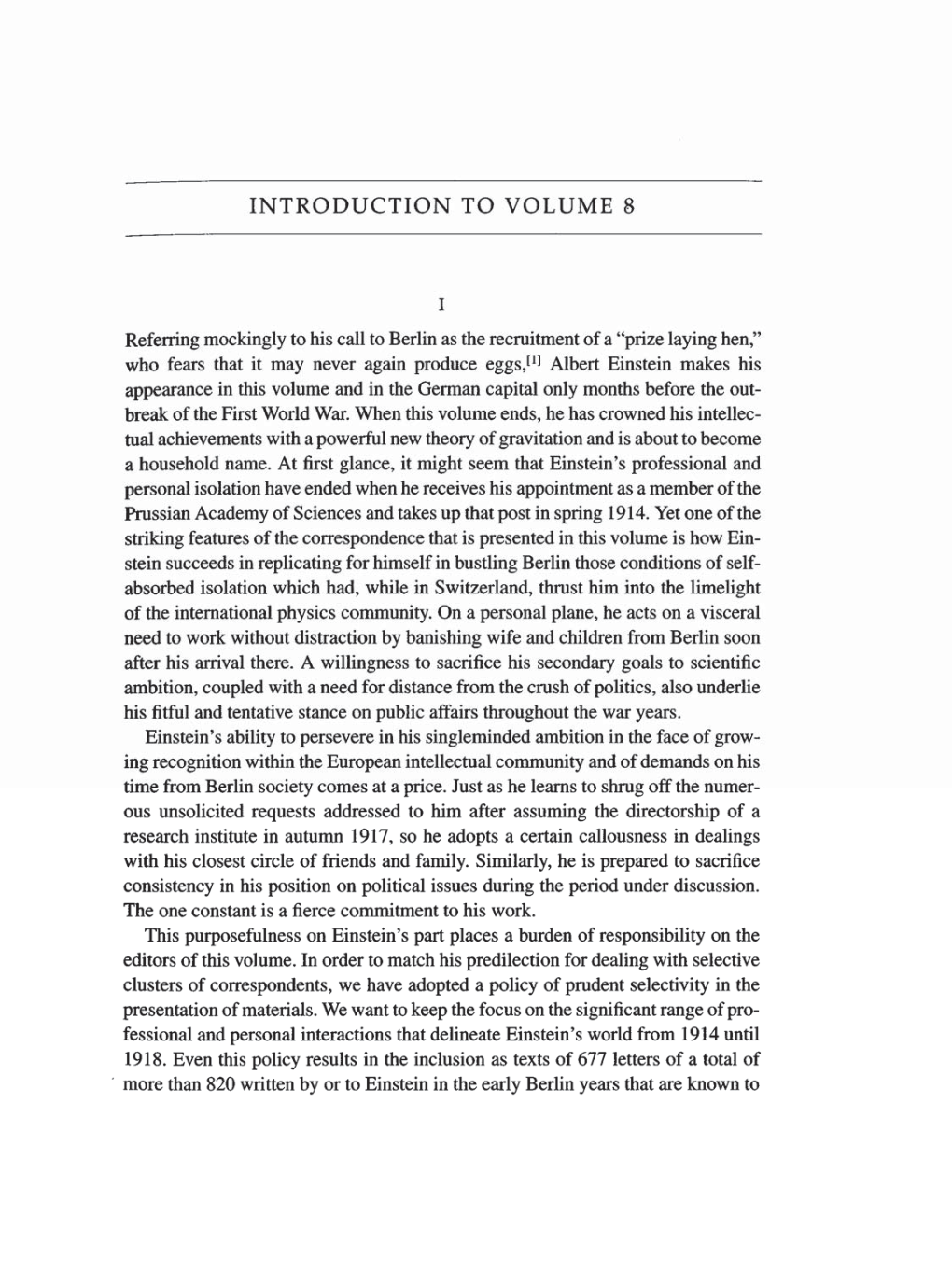INTRODUCTION TO VOLUME
8
I
Referring mockingly
to his call to Berlin
as
the recruitment
of
a “prize laying
hen,”
who fears that it
may never again produce
eggs,[1]
Albert
Einstein makes his
appearance
in this volume and in the German
capital only
months before the
out-
break of
the
First World
War.
When this volume
ends,
he has crowned his intellec-
tual achievements with
a powerful new theory
of
gravitation
and is about to become
a
household
name.
At
first
glance,
it
might seem
that Einstein’s
professional
and
personal
isolation have ended when he receives his
appointment as a
member
of
the
Prussian
Academy
of
Sciences and takes
up
that
post
in
spring
1914.
Yet
one
of
the
striking
features
of
the
correspondence
that
is presented
in this volume is how Ein-
stein
succeeds in
replicating
for himself
in bustling
Berlin those conditions
of
self-
absorbed
isolation which
had,
while in
Switzerland,
thrust him into the
limelight
of
the
international
physics community.
On
a personal plane,
he
acts
on a
visceral
need
to work without
distraction
by banishing
wife and children from Berlin
soon
after
his arrival there.
A
willingness
to
sacrifice his
secondary goals
to
scientific
ambition,
coupled
with
a
need
for distance from the crush
of
politics,
also underlie
his fitful and tentative stance
on
public
affairs
throughout
the
war
years.
Einstein’s
ability
to
persevere
in his
singleminded
ambition in the face
of
grow-
ing recognition
within the
European
intellectual
community
and
of
demands
on
his
time from Berlin
society comes
at
a
price.
Just
as
he learns
to
shrug
off
the
numer-
ous
unsolicited
requests
addressed
to
him
after
assuming
the
directorship
of
a
research
institute in autumn
1917,
so
he
adopts a
certain callousness in
dealings
with his closest circle
of
friends and
family. Similarly,
he is
prepared
to sacrifice
consistency
in his
position
on
political
issues
during
the
period
under
discussion.
The
one
constant is
a
fierce commitment
to
his work.
This
purposefulness on
Einstein’s
part places
a
burden
of
responsibility on
the
editors
of
this volume. In
order
to match his
predilection
for
dealing
with selective
clusters
of
correspondents, we
have
adopted
a policy
of
prudent selectivity
in the
presentation
of
materials. We want to
keep
the
focus
on
the
significant range
of
pro-
fessional
and
personal
interactions that delineate Einstein’s world from 1914 until
1918. Even this
policy
results in
the inclusion
as
texts
of
677
letters
of
a
total
of
more
than 820 written
by
or
to
Einstein in the
early
Berlin
years
that
are
known to
